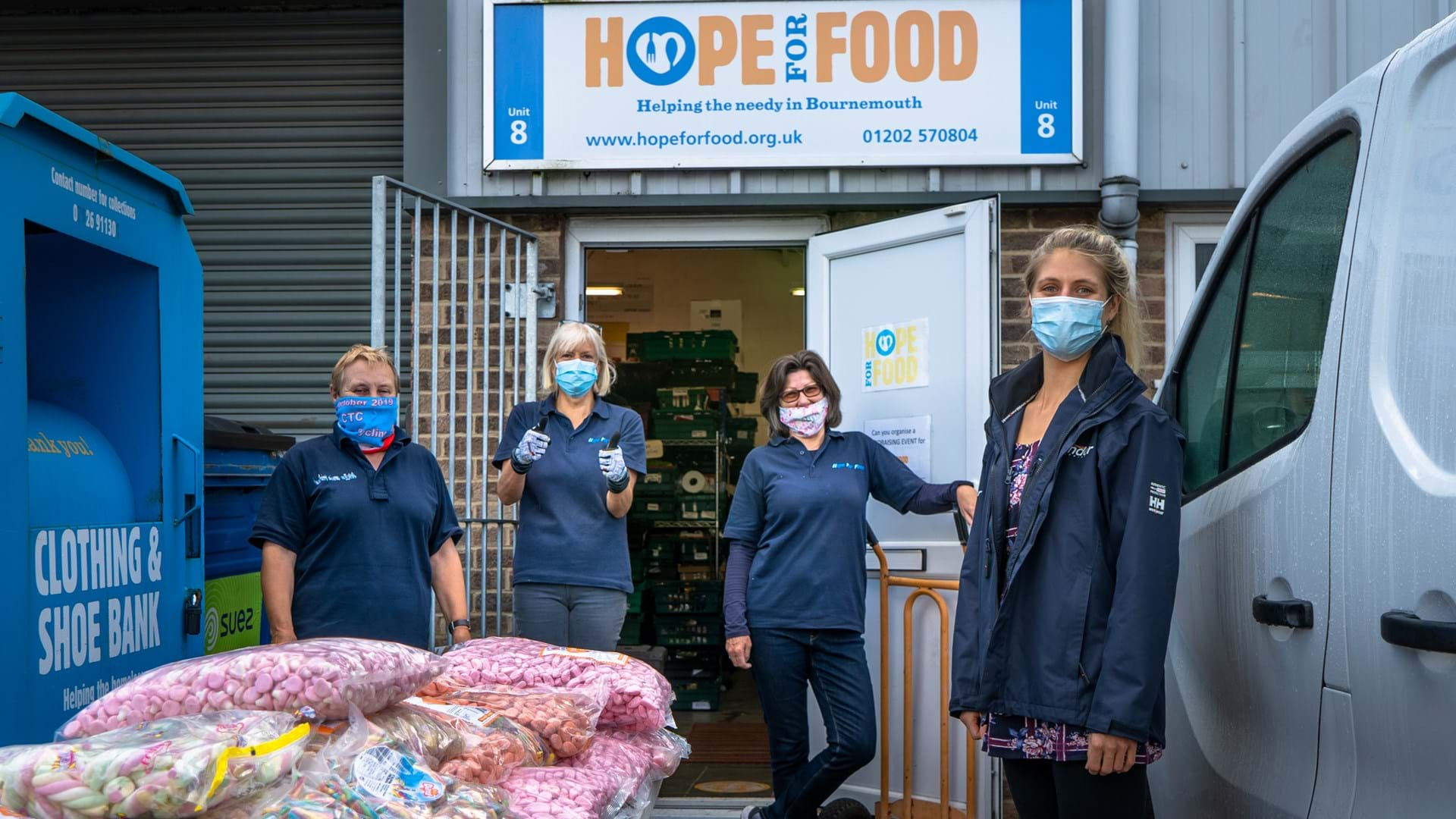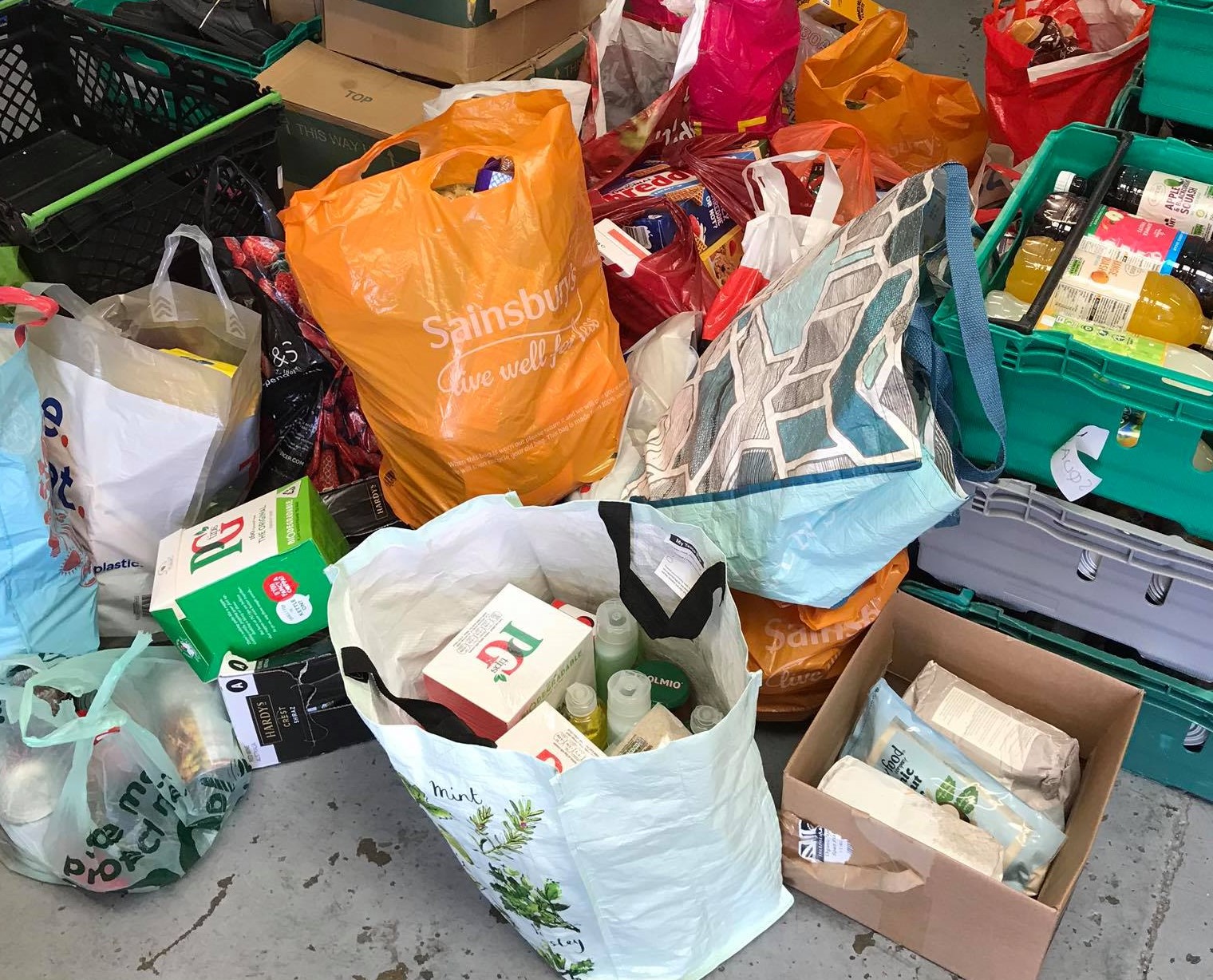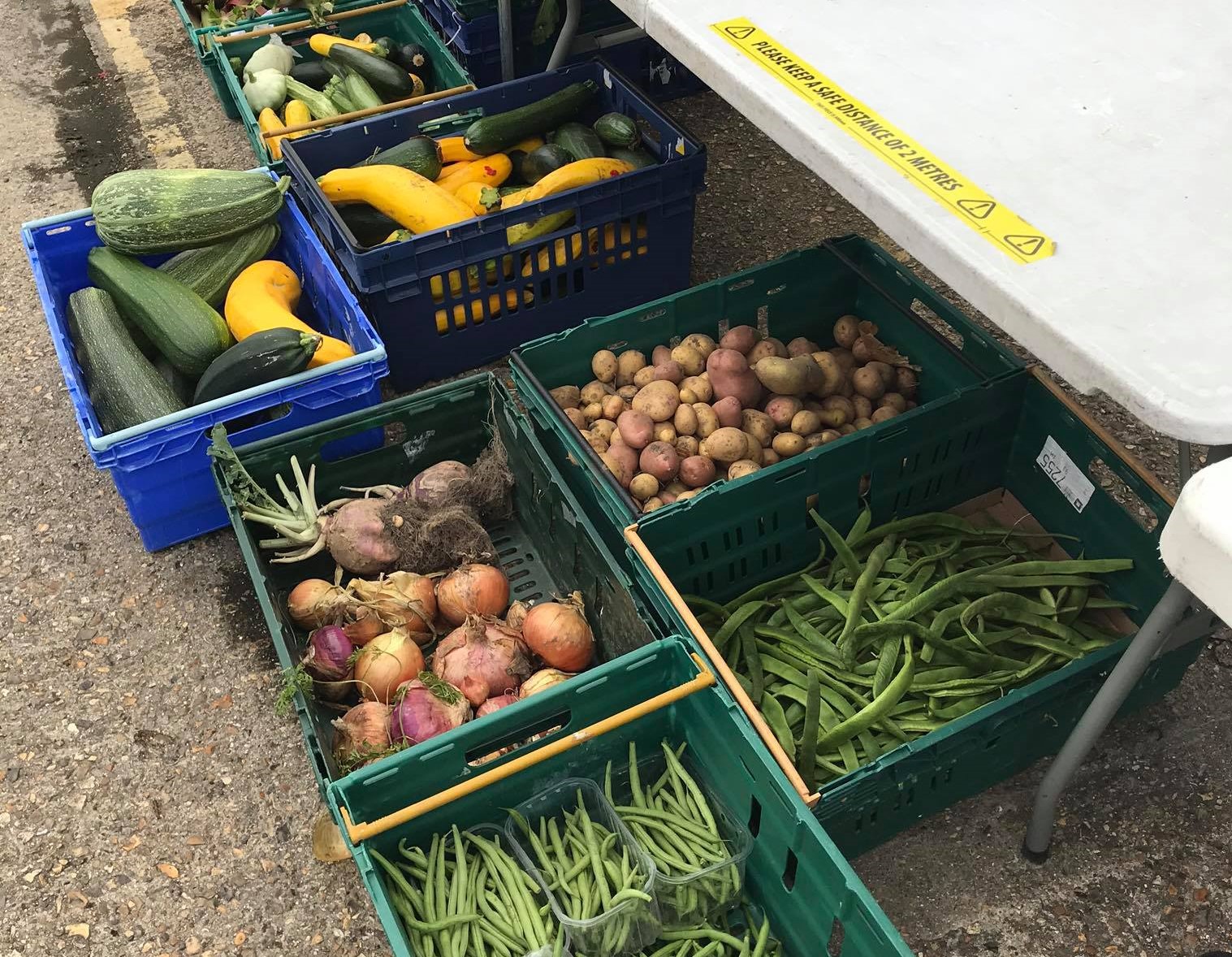
Ferries
Ferry & Hotel

- Ferries
- Ferry & Hotel
- Day Trips
- Travel Guides
- Onboard
- Help & Info
Ferries
Ferry & Hotel

Like many people this year, my working routine changed completely at the end of March when I was put on furlough from my full-time job in the Marketing team at Condor Ferries. Whilst I felt lucky that my job was being kept on hold for when things (hopefully) got back on track, I also felt a huge sense of uselessness as my once busy calendar of productivity was now empty. I used this time to volunteer with the local charity, Hope for Food. Read below to find out more.
Whilst working full-time, I was lucky enough to occasionally volunteer at the local soup kitchen run by the charity, Hope for Food. These soup kitchens provided up to 60 meals each evening to Bournemouth’s homeless with food made and served up by the volunteers with options including soup, sandwiches, and cakes.
Hope for Food is a charity set up in 2012 with the aim to provide essential support on a daily basis to those who need it and this can be in a variety of forms including providing food at soup kitchens (5 times a week, 52 weeks a year), delivering food parcels to families, or sorting out bedding, furniture and toiletries to those who need it.
The warehouse units where the donations and stock are stored are open 3 days a week, and this is where the magic behind the scenes happens. Here is where the donations are sorted, organised and packed into food parcels to be collected or delivered.

Come lockdown, there was a large surge in families needing extra support. After contacting the volunteer leader to see if there was space to help in the units whilst following social distancing measures, I became the newest volunteer to join the lovely group of people that dedicate their time to support others.
Covid-19 changed a lot of how the charity normally ran. The local Bournemouth, Christchurch and Poole council had set up temporary accommodation for the homeless and rough sleepers meaning the soup kitchens were no longer needed. However, Hope for Food still provided food for a hub run by St Mungo’s charity to support those who have been rehoused. Now some of the restrictions have been relaxed, the soup kitchens (now coined community meals) run twice a week at reduced capacity.

The increase in demand for food parcels meant that the charity’s new priority was making up the parcels and delivering these (the distribution of clothes and household items was suspended due to COVID -19 safety restrictions). The whole warehouse had to be re-organised in order to comply with social distancing, and instead of weekly parcels, we were making fortnightly parcels which reduced the number of people coming to the unit. During the busiest periods, our team made up to 150 parcels a week (I will never look at a can of baked beans in the same way again)!
Although I am now back from furlough and working for Condor, I will try to help with the charity when possible, whether that be donating food/clothes, supporting at the community meals, or going into the warehouses to help pack up parcels during busy periods. The charity doesn’t receive any formal funding and relies on the generosity of the public and volunteers in order to run effectively and support as many people as possible.
For anyone who has never volunteered or been part of a community action group, I definitely recommend giving it a go. Not only has this opportunity helped me realise how lucky I am when it comes to food and shelter, but it has also allowed me to meet a group of some of the kindest, positive, and fun people from all walks of life.

- Condor Ferries
- New Jetty Offices
- White Rock
- St Peter Port
- Guernsey
- GY1 2LL
- +44 3456 091 024
